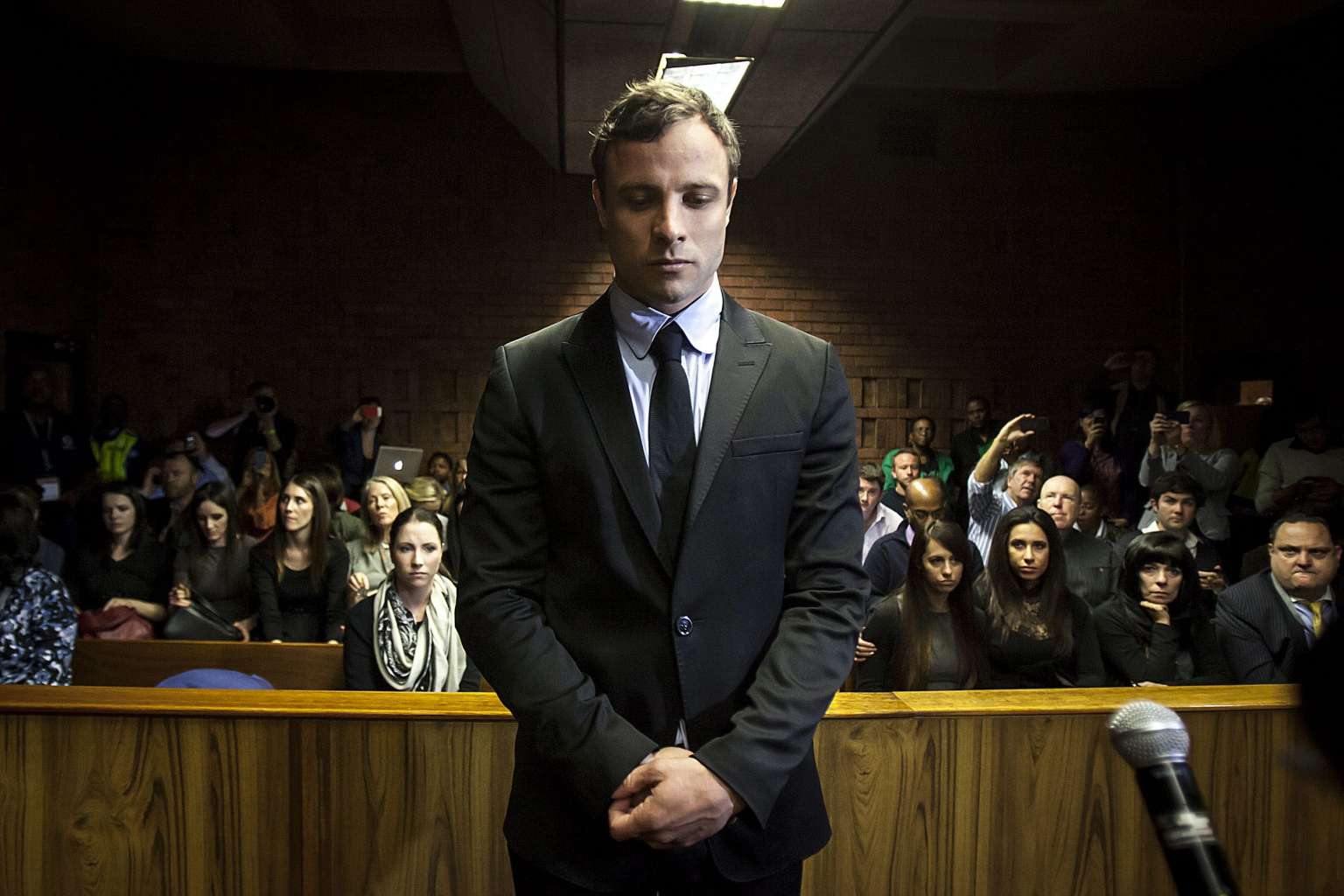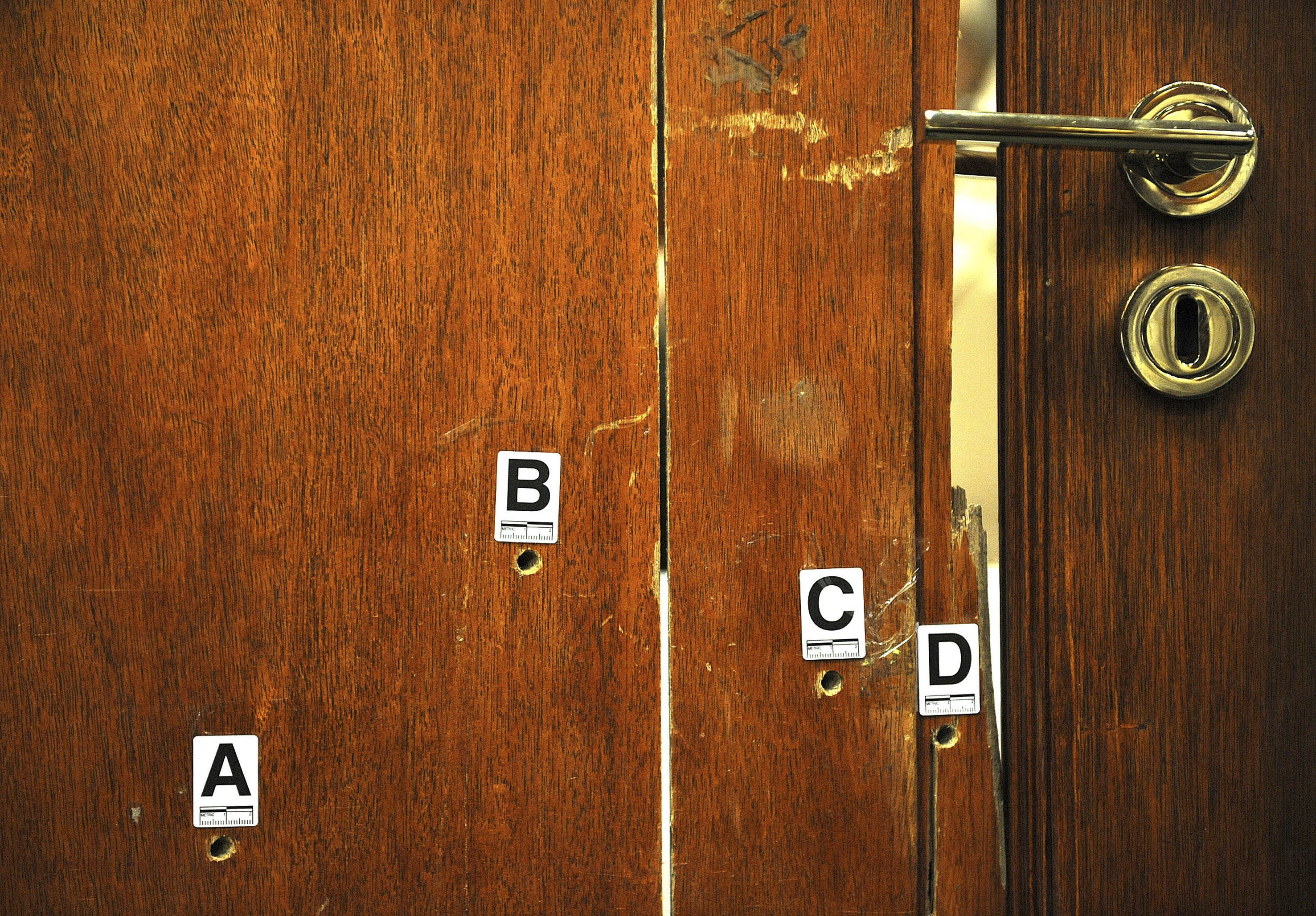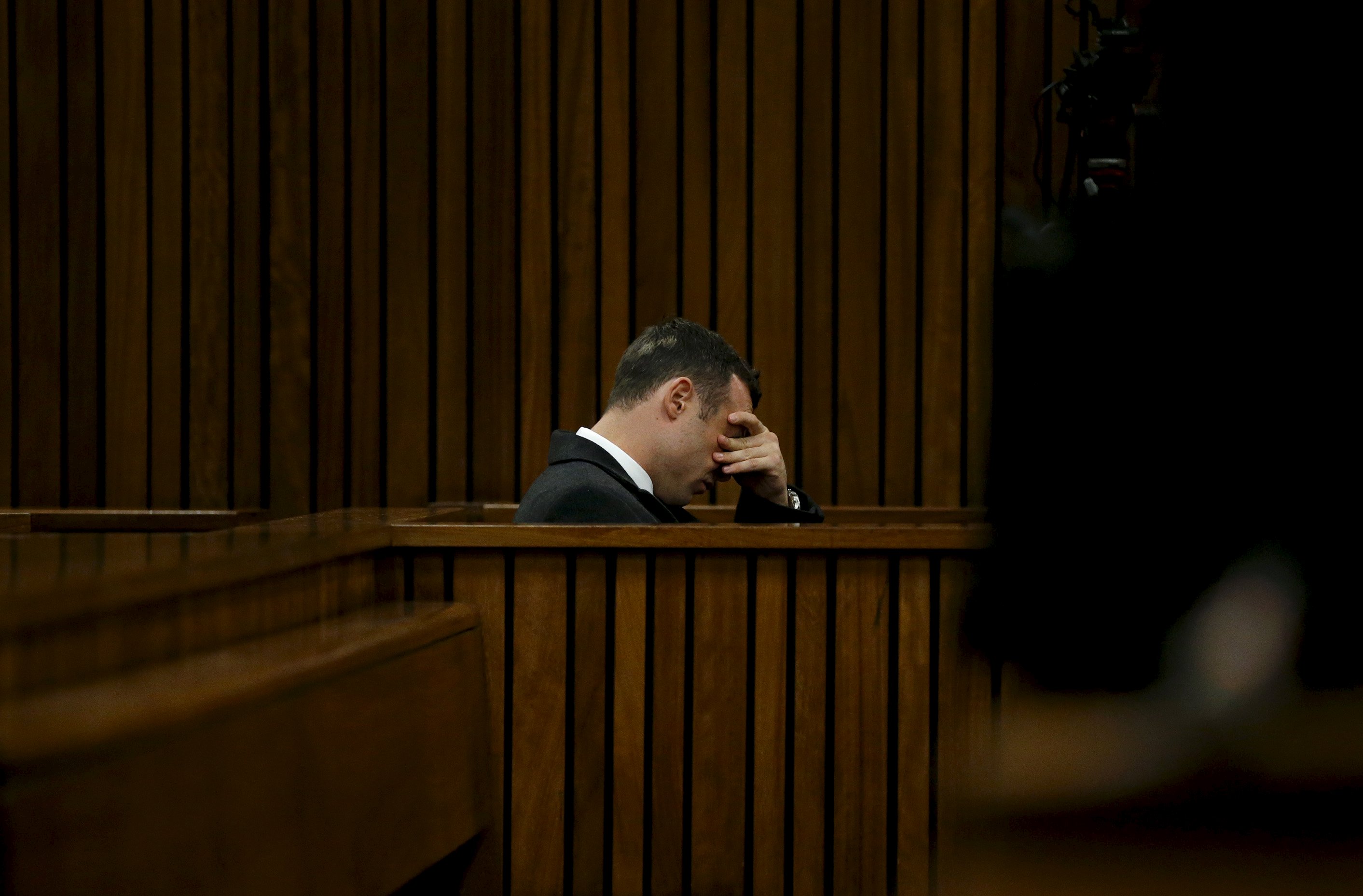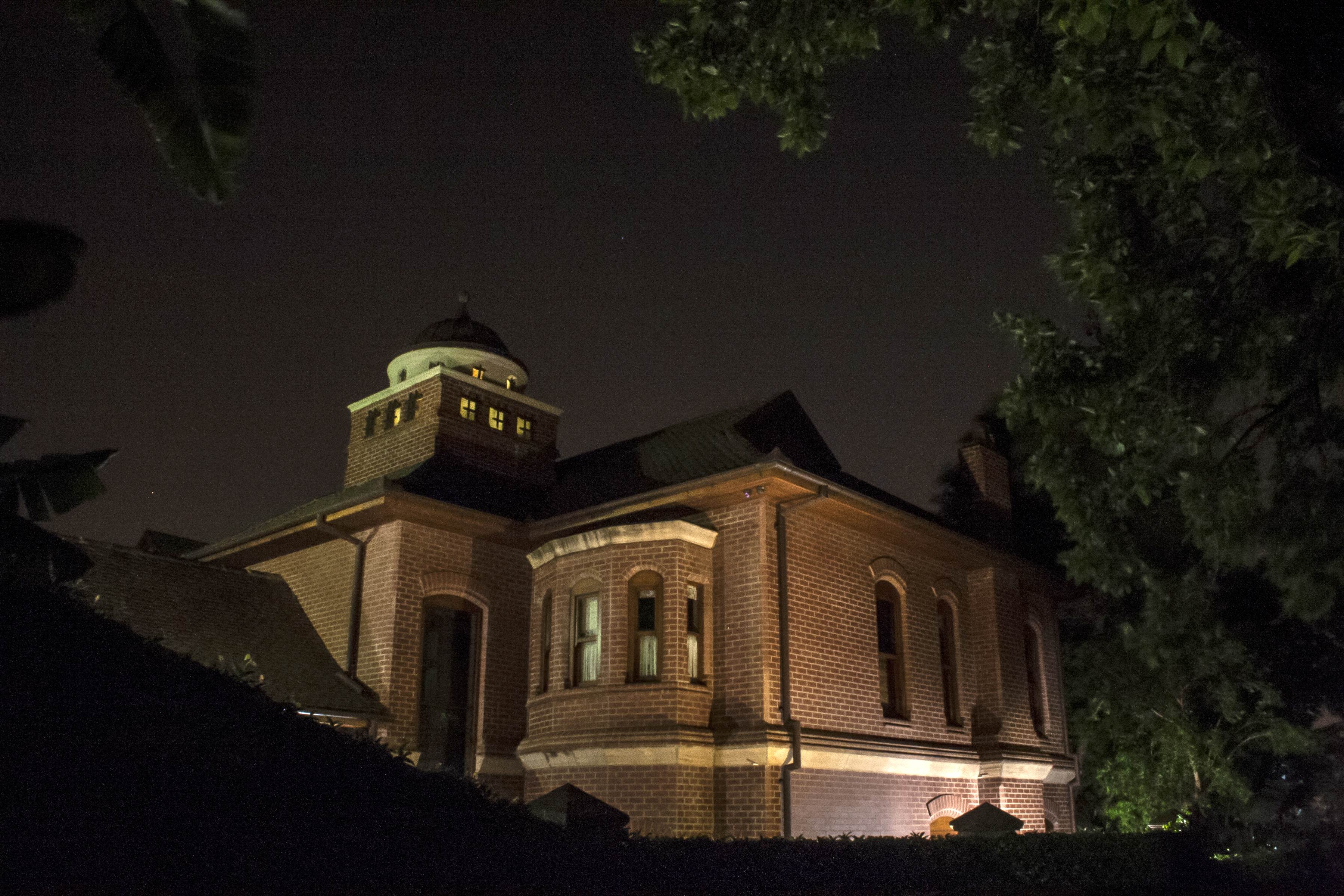What you need to know about the Oscar Pistorius case
Sign up now: Get ST's newsletters delivered to your inbox

Oscar Pistorius was freed on parole on Oct 20, 2015, but must serve the rest of his sentence under house arrest, and still has to face an appeal by prosecutors.
PHOTO: EPA
Follow topic:
Oscar Pistorius, South Africa's "Blade Runner", was freed on parole on Monday (Oct 20), just short of a year into his five-year sentence for killing his girlfriend Reeva Steenkamp.
But the disgraced Paralympic gold medallist must serve the rest of his sentence under house arrest, and still has to face an appeal by prosecutors who want him to be convicted of murder rather than culpable homicide.
Here's a quick recap of the case that has attracted media attention worldwide.
The Accused:

Pistorius, 29, was born without fibulas (calf bones) in Johannesburg. When he was 11 months old, his parents decided he should have his legs amputated below the knees so that he could be fitted with prosthetic legs. This allowed him to play sports unhindered while growing up.
Pistorius excelled in many sports, concentrating on running only after fracturing a knee while playing rugby.
"It was never made an issue. My mother would say to my brother, 'You put on your shoes, and Oscar, you put on your legs, then meet me at the car,'" he said in a 2011 interview.
His parents divorced when he was six and he has a problematic relationship with his father but is close to his siblings who were by his side in court. His mother died when he was 15 and the date of her death is tattooed on his arm.
Pistorius became a world icon at the 2012 London Olympics where he clocked 45.44 seconds in the 400m race before 80,000 roaring fans and a constellation of camera flashes. His sprint around the track was the first time in history that a double-amputee had raced at the Olympic Games.
Pistorius has long been open about his love for guns. He was known to sleep with a pistol under his bed at his upmarket home in a high-security Pretoria estate for fear of burglars.
The Victim

Ms Steenkamp, 28, was born in Cape Town and moved to Johannesburg years ago to pursue modeling. A law school graduate, she had a vibrant personality and a slew of modeling gigs under her belt. She was a presenter for FashionTV in South Africa, an FHM cover girl and the face of cosmetics company Avon.
In her Twitter biography , Ms Steenkamp described herself as "SA Model, Cover Girl, Tropika Island of Treasure Celeb Contestant, Law Graduate, Child of God." Shortly before her death, she had filmed reality TV series "Tropika Island of Treasure" in Jamaica.
She met Pistorius in November 2012 and had been in a relationship with him for several months when she was shot dead.
The Crime

Pistorius shot and killed Ms Steenkamp through a locked toilet door in his luxury home in Pretoria in the early hours of Valentine's Day in 2014. In his plea, he said he had thought Ms Steenkamp was in bed and that the person in the toilet was a burglar.
Ms Steenkamp died almost instantly after she was shot four times in the head, arm and hip through the toilet door.
The Trial

During the hearings which were described as "trial of the century", Pistorius often broke down, weeping and at times vomiting, as his girlfriend's brutal death was examined in excruciating detail, such as how her head "exploded" like a watermelon under the impact of his hollow-point bullets.
The court also heard transcripts of phone messages in which the couple argued, with Ms Steenkamp texting: "I'm scared of you sometimes, of how you snap at me."
Defence lawyers sought to explain that there were "two Oscars" - a world-class athlete and a vulnerable individual with a serious disability who acted out of fear, not anger, when he fired the fatal shots.
The high-profile proceedings exposed his darker side: offering glimpses of a dangerously volatile man with a penchant for guns, beautiful women and fast cars. In 2009, Pistorius spent a night in jail after allegedly assaulting a 19-year-old woman at a party in a case that was settled out of court.
Two years later, he was accused of firing a gun through the sunroof of an ex-girlfriend's moving car, although the judge found that there was not enough evidence to convict him on that charge.
Weeks before he shot Ms Steenkamp, Pistorius discharged a gun by accident at a Johannesburg restaurant."Oscar is certainly not what people think he is," ex-lover and trial witness Samantha Taylor said.
The Verdict, Sentence and Parole

Pistorius was found guilty of culpable homicide - a charge equivalent to manslaughter - and sentenced to five years in jail in October 2014.
But under South African sentencing guidelines, non-dangerous prisoners should spend only one-sixth of a custodial sentence behind bars. This means that Pistorius was to have been freed on parole on Aug 21, after serving one-sixth ofhis jail term. His release, however, was delayed because of several reviews.
Pistorius was finally released from jail in Pretoria on Oct 19 after serving one year of his five-year jail term. He will serve his remaining sentence under house arrest. He was allowed out of prison a day early in an apparent attempt to avoid media coverage of his release.
His parole conditions reportedly include instructions that he must report to police perdiocally, meet Ms Steenkamp's parents if they wish to do so, and subject to random visits by correctional services. He would also undergo continued psychotherapy and face restrictions on owning firearms. If he does not comply, he loses the privilege of correctional supervision and can go back to prison.
Ms Steenkamp's parents had contested his early release, but said no sentence would bring back their daughter.
The Appeal

Pistorius still faces an appeal by prosecutors who argue that he should have been convicted of murder, rather than culpable homicide, because he must have known that the person behind the toilet door could be killed.
The state will argue that the trial judge misinterpreted parts of the law and ignored vital evidence. A murder conviction would result in a minimum sentence of 15 years in prison.
A panel of five judges will hear the appeal on Nov 3. They could either reject the prosecution's appeal, order a retrial or convict Pistorius of murder themselves, legal experts say.
SOURCES: AFP, REUTERS. THE INDEPENDENT, CNN.

